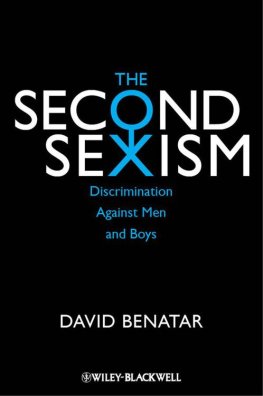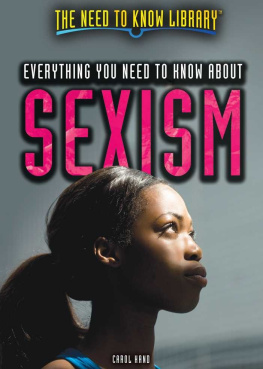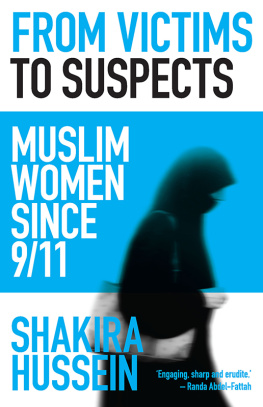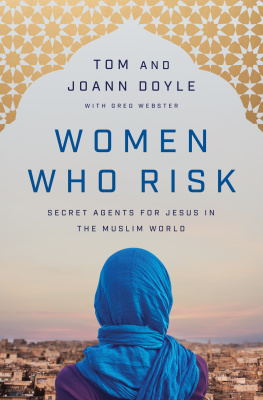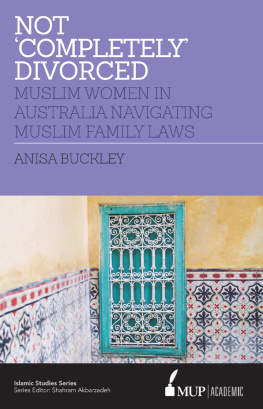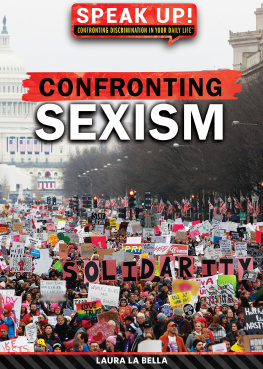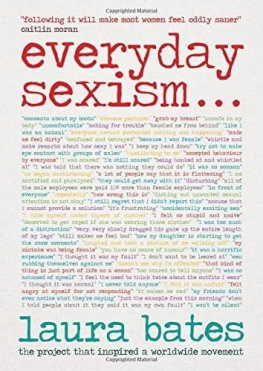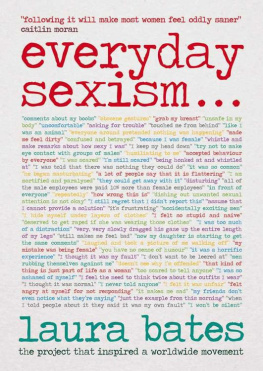FIGHTING HISLAM
WOMEN, FAITH AND SEXISM
FIGHTING HISLAM
SUSAN CARLAND

MELBOURNE UNIVERSITY PRESS
An imprint of Melbourne University Publishing Limited
Level 1, 715 Swanston Street, Carlton, Victoria 3053, Australia
www.mup.com.au
First published 2017
Text Susan Carland, 2017
Design and typography Melbourne University Publishing Limited, 2017
This book is copyright. Apart from any use permitted under the Copyright Act 1968 and subsequent amendments, no part may be reproduced, stored in a retrieval system or transmitted by any means or process whatsoever without the prior written permission of the publishers.
Every attempt has been made to locate the copyright holders for material quoted in this book. Any person or organisation that may have been overlooked or misattributed may contact the publisher.
Cover design by Sandy Cull
Typeset by Megan Ellis
Printed in Australian by McPhersons Printing Group
National Library of Australia Cataloguing-in-Publication entry
Carland, Susan, author.
Fighting Hislam/Susan Carland.
9780522870350 (paperback)
9780522870367 (ebook)
Includes index.
SexismReligious aspectsIslam.
Muslim womenConduct of life.
Muslim womenSocial conditions.
Women in Islam.
Sexism in religion.
297.082
CONTENTS
DANGEROUS WATERS
W ithin minutes of arriving to collect my professionally bound thesis, I found myself on the receiving end of an unsolicited and impenetrable rant about female genital mutilation.
Whats your paper on? the shop owner had inquired.
Its on Muslim women an, I began, but before I could finish my sentence, he had launched into the subject. That I hadnt even mentioned the words female genital mutilation was irrelevant; merely saying Muslim women was wide enough a rabbit hole for him to dart down. My presence as a Muslim woman and my half-delivered topic were the only encouragement required for him to pontificate.
That he felt authorised to deliver a lecture to me about his understanding of the allegedly sexist treatment of women in Islam, the very subject on which I was there to collect my years-long PhD dissertation, didnt even surprise me anymore. This was not the first time a stranger had felt entitled to raise the potential religious-interference of my genitals with me. Many years earlier, amid the cadavers and preserved body parts trapped in perspex boxes during an anatomy tutorial at university, my teacher had merrily joked in front of the class about me undergoing genital mutilation, given I was a Muslim.
I was less shocked at this more recent encounter, but both times I was mortified and angry. Its uncanny how often people will try to demonstrate their concern over the alleged oppression of Muslim women by humiliating them. Even finding out the details of my research findings didnt seem to do much to deter people from baldly sharing their opinions on Muslim women.
When I was neck deep in my doctoral research, I attended a black-tie, journalism-industry dinner on a windy Sydney night. In the well-dressed crowd were some of Australias most intelligent and perceptive thinkers. By this time, I had grown accustomed to answering questions about my subject. I had also grown quite used to the standard responses I received to my thesis, and so I habitually gave ambiguous answers to avoid these reactions.
A well-known and popular journalist approached me and asked what I did for living. His reaction, despite belonging to a group of people usually known for their cognitive skills, was so representative of the myriad reactions non-Muslims gave to my research subject matter that I scribbled it down on a dinner napkin as soon as he left, so I would not forget a word:
Journalist: | So what do you do? |
Me: | Im completing my PhD. |
Journalist: | On? |
Me: | (Purposefully vague) Sociology and politics. |
Journalist: | But what is your exact research question? |
Me: | (Inward sigh at what was inevitably to follow, but valiantly indifferent exterior) Im investigating the way Muslim women fight sexism within Muslim communities. |
Journalist: | (With widened, alarmed eyes) Thats dangerous waters! |
Me: | (Through gritted teeth) Not really. Its been going on for many hundreds of years, and Ive been spoiled for choice with the number of women who have been willing to be participants in my research. |
Journalist: | Did they want it known, what they were doing? Or did they need it kept secret? |
Me: | (Icy frustration descends like Arctic winter) Oh, many of them were happy to be identified in my research. In fact, some were angry when I suggested giving them a pseudonym, insisting they wanted to be known for this work. |
Journalist: | (Now completely flabbergasted) But but, did their husbands know of their apostasy?! |
Me: | (Choosing to ignore use of apostasy as eyes take on glacial sheen) Actually, many of the women listed their husbands, or another Muslim man like their father or imam, as their greatest supporters. |
Journalist: | (Now quite literally speechless) ! |
Ive had similar exchangestoo many to countwith non-Muslims over the course of my research. Commonplace is the firm conviction that sexism against Muslim women is rife, most often coupled with the utter disbelief that women who challenge sexism could exist, let alone that there are many of them, that they are not a new phenomenon, and that Muslim men often support them in their efforts. People rarely make any effort to hide their feelings on the topicindeed, they see no reason to. As far as they are concerned, their beliefs are based on fact, and the situation for Muslim women is dire. I often wonder how they can be so comfortable presenting these attitudes directly to me, a clearly identifiable Muslim woman in a hijab (headscarf). They do not appear at all uneasy in making it apparent just how bad they think life is for any and all Muslim women, and how unengaged they believe Muslim women to be in confronting the sexism they invariably face.
I have received similar, but different, reactions within some sections of various Muslim communities when they found out the focus of my research. Often I would be purposefully vague when discussing my topic with them, too. I would restrict myself to saying that I was researching Muslim women, and avoid highlighting the fighting sexism part, as there is a complicated, often suspicious attitude towards anything that may be perceived as feminism within Muslim communities. Or I would rush to reassure them that I was not framing this in an anti-religious perspective.
Their scepticism is perhaps an understandable reaction from a minority community that frequently feels under siege, particularly when it comes to womens rights. I hoped the fact that my research was being carried out from within a common faith, and that it drew explicitly and deeply on the theological resources afforded by this, reassured them that I, unlike many others, was not engaging in an attack on the faith and communities they held dear. But still certain people within the Muslim community are scornful, rolling their eyes and calling me a feministnot as a compliment, but a warning. They saw feminism and Islam as inherently at odds.
Next page

